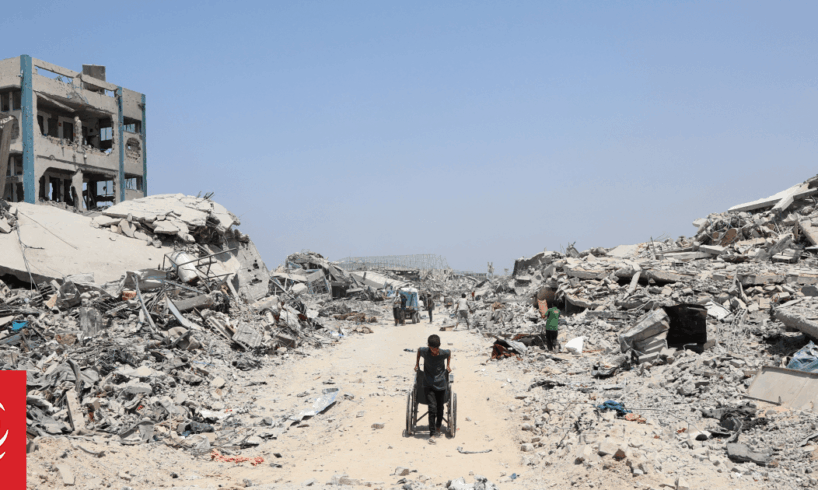
New Zealand has held off making any moves to date, with Cabinet instead opting to go through a weeks-long consultation and deliberation process before announcing its decision at UNGA.
Recent comments about “weaponising hostages” made by ACT party leader David Seymour demonstrate the different approaches the coalition parties have taken.
Anas Iqtait, from the Australian National University’s Centre for Arab and Islamic Studies, said it would be difficult for New Zealand to hold out on recognition for much longer.
“If New Zealand doesn’t recognise a Palestinian state then it will have to justify why, given the vast majority of its allies have.”
Of the 193 UN member states, 147 recognise a Palestinian state.
While recognition was a largely symbolic measure, Iqtait said it was one every country, including New Zealand, could play a role in.
“This is not necessarily about geographic proximity or trade relations, it’s about taking a principled position at a time when the Palestinians are going through displacement and what international organisations are calling a genocide in Gaza.
“So there is a moral responsibility. History will judge.”
The government has condemned the deadly 7 October attacks by Hamas, as well Israel’s assault on Gaza that has caused widespread death and destruction.
It is also repeatedly called for an immediate ceasefire, sanctioned several Israeli Ministers and put up nearly $40 million in humanitarian aid.
Cabinet has been considering the question of recognition since the start of the month, on the basis it’s a matter of “when, not if”.
Foreign Affairs Minister Winton Peters will speak at the UN this week.
Photo: RNZ
Peters has stressed the importance of having the most up to date information before the government’s decision is finalised and announced later this week.
“It’s a developing, evolving process and to make decisions before you have all the information… is not a sound idea,” Peters told reporters last week.
University of Canterbury law professor Karen Scott said the delay would be less about information gathering and more about assessing the political consequences.
“Not quite sure what further information the government needs but obviously, there are political consequences. The US is pretty firmly opposed to recognition and has taken action against some states which have recognised.
“So I can understand New Zealand wanting to politically minimize any fallout from the United States but I think not recognising Palestine would be quite a hard position to take.”
She said it was possible New Zealand might go down a more nuanced path on recognition that spoke to the practicalities of Palestinian statehood.
“I don’t think we could say it has an effective government at this stage. It’s quite hard now to point to clear territory.
“So a position that New Zealand could take is that it has not met the criteria for statehood and therefore it would not be appropriate to recognise Palestine at this point.”
Iqtait said while it was a fast-moving crisis, it was only going in one direction.
“A lot of this is happening quite quickly. There’s a lot of change on the ground but this change is only happening in one direction, which is the elimination of any possibility of a Palestinian state.”
“The international community has decided that the best way of answering Israeli policies on the ground is by recognizing a Palestinian state in hopes of increasing political pressure on Israel for a political settlement for the Palestinians.”
The latest RNZ-Reid Research poll found 42.5 percent of voters think New Zealand should recognise Palestine, with a sizeable 35.4 percent saying they did not know and 22.1 percent against recognition.
Peters will attend UN conference on a two-state solution between Israel and Palestine to listen, not speak, to what other countries are saying on the issue.
It will be one of many inputs into Cabinet’s final decision on recognition, that Peters will outline during his speech in the general debate on Saturday.
Talks this week will be happening without Palestinian representation at the table, after the United States refused to grant delegates from the Palestinian Authority visas.
Sign up for Ngā Pitopito Kōrero, a daily newsletter curated by our editors and delivered straight to your inbox every weekday.





